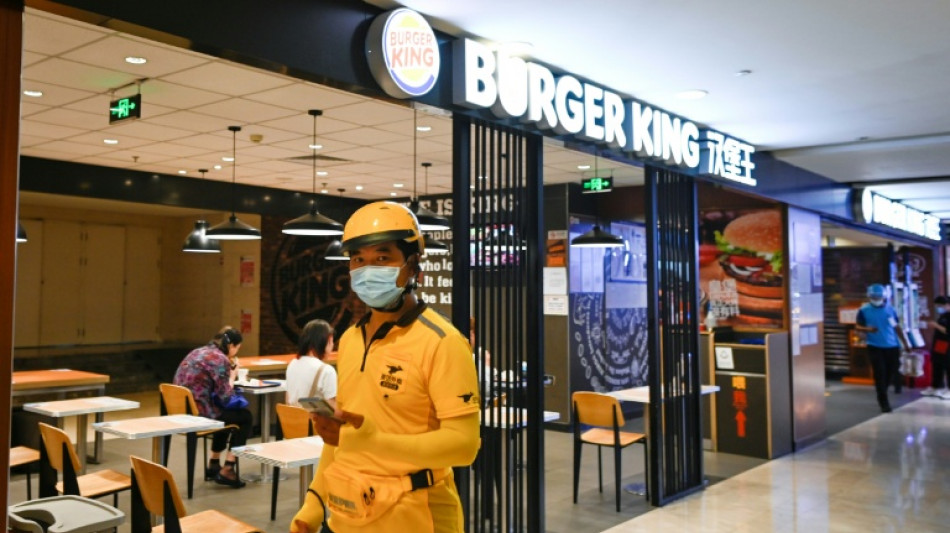

Burger King to enter China joint venture, plans to double stores
US fast-food chain Burger King will rapidly expand its China operations in coming years, its parent company said, selling its controlling stake to form a new joint venture powered by hundreds of millions of dollars in local investment.
International brands have in recent years sought to pivot their strategies in the world's number two economy, where a persistent spending slump and increasingly digitalised services shape new consumption habits.
The Florida-based hamburger giant -- owned by Canadian multinational Restaurant Brands International (RBI) since 2014 -- entered the Chinese market in 2005.
Two decades later, Burger King still trails global rivals McDonald's and KFC in the vast consumer market.
The new joint venture, Burger King China, will receive $350 million in investment from Beijing-based private equity firm CPE, according to a statement by RBI on Monday.
The funds will be used to "support restaurant expansion, marketing, menu innovation, and operations", the statement said.
Under the new blueprint, Burger King China will seek to double the chain's number of restaurants in the country "within five years" and reach more than 4,000 locations by 2035, it added.
By contrast, key competitor McDonald's had more than 6,800 stores in mainland China last year, according to data released by the company.
Fried chicken chain KFC had over 12,600 stores in China as of the end of September this year, according to the website of Yum China, its local operator.
Once the transaction is complete, CPE will hold around 83 percent of Burger King China, while RBI will hold the remainder, the statement said.
"China remains one of the most exciting long-term opportunities for Burger King globally," said Joshua Kobza, CEO of RBI, according to the statement.
"Our recent investments and this joint venture underscore our confidence in the Chinese market," he added.
The latest shake-up follows an announcement last week by Starbucks that it will sell a controlling stake in its China retail operations.
The partnership marks a strategic shift for the US coffee chain after more than 26 years in China, where it has ceded market share more recently to a new generation of local competitors.
劉-T.Liú--THT-士蔑報



